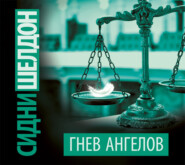По всем вопросам обращайтесь на: info@litportal.ru
(©) 2003-2025.
✖
The Other Side of Me
Настройки чтения
Размер шрифта
Высота строк
Поля
I had met his bride-to-be, Sydney Singer, when I lived in Denver. Sydney was a young, attractive secretary who had worked in Harry’s brokerage office, where Seymour met her. I found her to be warm and intelligent, with a nice sense of humor.
The wedding was simple, with just the members of the family there. When the ceremony was over, I congratulated Seymour. ‘She’s a terrific girl,’ I told him. ‘Hang on to her.’
‘Don’t worry. I intend to.’
Six months later, they went through a bitter divorce.
‘What happened?’ I asked Seymour.
‘She found out I was having an affair.’
‘And she asked for a divorce?’
‘No. She forgave me.’
‘Then why—?’
‘She caught me with someone else. That’s when she divorced me.’
‘Do you ever see her?’
‘No, she hates my guts. She told me she never wants to see me again. She went to Hollywood. She has a brother out there. She got a job as a secretary at MGM for a woman director. Dorothy Arzner.’
My very brief foray into radio had given me a taste for it and I had become excited about its possibilities. Radio could well be the profession I was looking for. In every minute of my spare time, I haunted WBBM and other Chicago radio stations, looking for a job as an announcer. There were no jobs, period. I had to face the fact that I was back in the same deadly trap, with no prospects for the future.
One Sunday afternoon when everyone was out of the apartment, I sat down at our little spinet piano. I sat there, creating a melody. I decided it was not bad and I put lyrics to it. I called it ‘My Silent Self.’ I looked at it and thought, Now what? I could either let it sit inside the piano bench, or I could try to do something with it.
I decided to try to do something.
In that year, 1936, the major hotels in the country had orchestras in their ballrooms that broadcast coast to coast. At the Bismarck Hotel the orchestra leader was an amiable young musician named Phil Levant. I had never spoken to him, but from time to time, when he passed the checkroom on his way to the ballroom, we would nod at each other.
I resolved to show my song to him. As he passed the checkroom that evening, I said, ‘Excuse me, Mr. Levant. I’ve written a song and I wonder if you would mind taking a look at it.’
The expression on his face gave me an idea of how many times he had heard that request, but he was very gracious.
‘Glad to,’ he said.
I handed him a copy of the sheet music. He glanced at it and walked away. That’s the end of that, I thought.
An hour later, Phil Levant was back at the checkroom.
‘That song of yours…’ he said.
I was holding my breath. ‘Yes?’
‘I like it. It’s original. I think it could be a hit. Would you mind if I had an orchestration made, and we played it?’
Mind? ‘No,’ I said. ‘That’s—that’s wonderful.’
He liked my song.
The following evening, while I was hanging hats and coats, from around the corner in the huge ballroom I heard ‘My Silent Self’ being played. I was thrilled. Since the orchestra was broadcasting nationwide, people would be hearing my song all over the country. It was a heady feeling.
When I finished work late that night, I went home, exhausted, and got into a hot bath.
Just as I was relaxing, Otto hurried into the bathroom. ‘There’s a telephone call for you.’
At this hour? ‘Who is it?’
‘He says his name is Phil Levant.’
I leaped out of the tub, grabbed a towel and hurried to the telephone.
‘Mr. Levant?’
‘Sheldon, there’s a publisher here from Harms Music Company. They heard your song over the air, in New York. They want to publish it.’
I almost dropped the phone.
‘Can you come down here right away? He’s waiting for you.’
‘I’m on my way.’ I dried myself off and hurriedly got dressed again. I grabbed a copy of the sheet music.
‘What’s going on?’ Otto asked.
I explained it to him. ‘Can I borrow the car?’
‘Certainly.’ He handed me the keys. ‘Be careful.’
I hurried downstairs, got into the car and headed for the Outer Drive, on my way to the Bismarck Hotel. My mind was racing with the excitement of having my first song published, when I heard a siren behind me, and saw a flashing red light. As I pulled over to the side of the road, a policeman got off his motorcycle and came up to the car.
‘What’s your rush?’
‘I didn’t know I was speeding, Officer. I’m on my way to meet a music publisher at the Bismarck Hotel. I work there, in the checkroom. Someone wants to publish my song and I—’
‘Driver’s license?’
I showed him my license. He put it in his pocket. ‘Okay. Follow me.’
I was staring at him. ‘Follow you where? Just give me a ticket. I’m in a big—’
‘There’s a new procedure,’ he said. ‘We’re not giving out tickets anymore. We’re taking offenders right to the station.’
My heart sank. ‘Officer, I have to go to this meeting. If you could just give me a ticket, I’d be glad to—’
‘I said follow me.’
I had no choice.

















